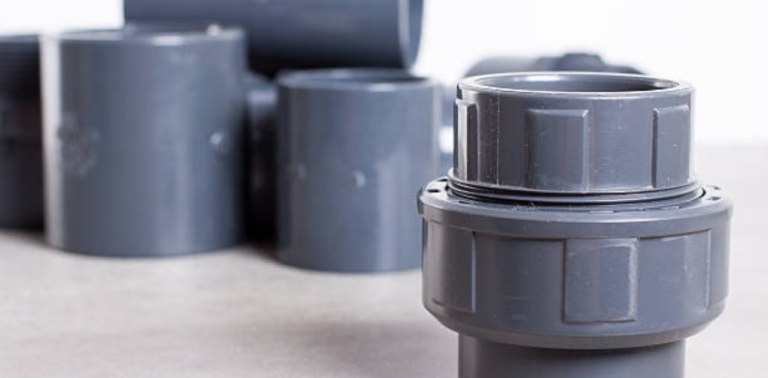Which Engine Oil Is Better for You, 0W40 or 10W40?
Choosing the right engine oil for your vehicle is crucial for optimal performance and longevity. Among the various options available, 0W40 and 10W40 are popular choices. In this article, we’ll explore the differences between these two grades of engine oil 0W40 or 10W40 to help you make an informed decision for your vehicle.
Understanding the Viscosity Grades
Before delving into the specifics of 0W40 or 10W40, it’s essential to understand what these numbers represent. The numbers are part of the viscosity grade, which indicates how the oil behaves under different temperatures.
0W40
The “0W” in 0W40 stands for “Winter,” indicating the oil’s viscosity in cold temperatures. The lower the number preceding the “W,” the better the oil performs in colder conditions. 0W40 is designed to flow well even in extremely low temperatures, making it an excellent choice for cold climates.
10W40
Similarly, the “10W” in 10W40 signifies its performance in colder temperatures. While not as suitable for extremely low temperatures as 0W40, 10W40 still provides good flow characteristics in moderately cold conditions. The “40” represents the oil’s viscosity at higher temperatures, indicating its performance in warmer environments.
Factors to Consider
Climate and Temperature
One of the primary considerations when choosing between 0W40 or 10W40 is the climate in which you regularly drive. If you live in an area with harsh winters, where temperatures frequently drop below freezing, 0W40 is a wise choice. On the other hand, if you reside in a milder climate, 10W40 may be sufficient and more cost-effective.

Vehicle Type and Age
The type of vehicle you drive also influences the choice between these two engine oils. Newer vehicles with modern engines often benefit from the improved flow characteristics of 0W40, contributing to better fuel efficiency and engine protection. Older vehicles, especially those with high mileage, might find the thicker consistency of 10W40 more suitable to address potential oil consumption issues.
Manufacturer Recommendations
Always consult your vehicle manufacturer’s recommendations and specifications before making a decision. They often provide guidelines on the preferred viscosity grade for your specific make and model. Deviating from these recommendations could impact your vehicle’s warranty and overall performance.
Advantages of 0W40

Cold-Weather Performance: 0W40 excels in cold temperatures, ensuring your engine receives proper lubrication during startup in chilly conditions.
Fuel Efficiency: The lower viscosity of 0W40 contributes to improved fuel efficiency, making it an environmentally friendly option.
Modern Engine Protection: Vehicles with advanced engines benefit from the superior flow characteristics and protection offered by 0W40.
Advantages of 10W40
Versatility: 10W40 performs well in a broader range of temperatures compared to 0W40, making it suitable for varied climates.
Cost-Effectiveness: Generally, 10W40 tends to be more affordable, providing a budget-friendly option without compromising on performance.
Older Engines: Vehicles with older engines or those with higher mileage may find 10W40 better suited to address potential oil consumption issues.
Suitable Temperature Ranges for 0W40 or 10W40 Engine Oils
Understanding the suitable temperature ranges for 0W40 or10W40 engine oils is crucial for making an informed decision about which oil to use in your vehicle. Both oils have specific characteristics that make them better suited for particular temperature conditions.
0W40 Engine Oil
Ideal Temperature Range:
· Cold Start: 0W40 is designed to perform exceptionally well in cold temperatures, making it the ideal choice for winter conditions. It remains fluid and provides effective lubrication even in sub-zero temperatures, ensuring a smooth start-up for your engine.
Performance in Warm Conditions:
· 0W40 also performs admirably in warmer temperatures, offering stability and protection for your engine components. However, its standout feature is its ability to flow efficiently in cold climates.
10W40 Engine Oil
Ideal Temperature Range:
· Moderate to Warm Conditions: While 10W40 is suitable for moderately cold temperatures, its viscosity is better adapted to milder and warmer climates. It maintains proper lubrication during start-up in moderately cold conditions but may not flow as well in extremely low temperatures as 0W40.
Performance in Hot Conditions:
· 10W40 provides reliable lubrication and protection in hotter temperatures. It is a versatile choice for regions with varying climates, offering stability across a range of operating conditions.

Choosing Based on Temperature and Climate
When to Choose 0W40:
Cold Winters: If you live in an area with harsh winter conditions and frequent sub-zero temperatures, 0W40 is an excellent choice to ensure optimal engine performance during cold starts.
Northern Climates: Regions with prolonged cold seasons, such as northern climates, benefit from the exceptional cold-flow properties of 0W40.
When to Choose 10W40:
Milder Winters: In areas with relatively mild winters and occasional cold spells, 10W40 is a suitable and cost-effective option.
Versatile Climates: If you reside in a region with diverse temperature ranges throughout the year, 10W40 provides versatility, performing well in both moderate cold and warm conditions.
Consider Your Driving Patterns
Additionally, consider your driving patterns. If your vehicle experiences frequent short trips in cold weather, the quick-circulating properties of 0W40 may be advantageous. For those with consistent driving in moderate temperatures, 10W40 offers a balance of performance and cost-effectiveness.
Difference in Oil Consumption
Thinner oil use is more common in vehicle engines. In addition, oil burning is a more prevalent issue that mostly affects thinner oil, causing the oil to evaporate quicker than anticipated.
Thicker oil leaks through outdated seals and piston rings in older autos. In terms of oil usage, 10w-40 is preferable to 0w-40 due to its thicker nature.
Where to Use 0W40 and 10W40 Engine Oils: Matching Your Vehicle’s Needs
Choosing between 0W40 or 10W40 engine oils involves considering various factors, including your vehicle type, driving conditions, and manufacturer recommendations. Let’s explore where each oil is best suited to ensure optimal engine performance.
0W40 Engine Oil:
- Modern Vehicles with Advanced Engines:
- Ideal For: Newer vehicles equipped with modern, high-performance engines benefit from the superior flow characteristics of 0W40. It ensures quick lubrication during cold starts and provides excellent protection for technologically advanced engines.
- Harsh Winter Climates:
- Recommended For: If you live in an area with harsh winter conditions where temperatures frequently drop below freezing, 0W40 is an excellent choice. Its low viscosity ensures proper lubrication even in extremely cold temperatures, promoting smooth engine operation during start-up.
- Fuel Efficiency Priority:
- Suitable For: Drivers who prioritize fuel efficiency can benefit from the lower viscosity of 0W40. It contributes to reduced friction, enhancing fuel economy, and reducing overall environmental impact.
10W40 Engine Oil:
- Versatile Driving Conditions:
- Ideal For: 10W40 is a versatile option suitable for regions with varying climates. If your area experiences both cold and warm temperatures throughout the year, 10W40 provides reliable performance across a broad range of operating conditions.
- Older Vehicles or High Mileage Engines:
- Recommended For: Vehicles with older engines or those with higher mileage might find 10W40 to be more suitable. The slightly thicker consistency helps address potential oil consumption issues that can arise in aging engines.
- Cost-Conscious Consumers:
- Suitable For: If cost-effectiveness is a priority without compromising performance, 10W40 is often more affordable than 0W40, making it an economical choice for budget-conscious consumers.

Consider Manufacturer Recommendations:
Always refer to your vehicle manufacturer’s recommendations and specifications when choosing between 0W40 and 10W40. Manufacturers provide guidelines based on extensive testing, ensuring that you use the optimal oil for your specific make and model.
Driving Patterns Matter:
Consider your typical driving patterns. If you frequently make short trips in cold weather, 0W40’s quick-circulating properties may be advantageous. For consistent driving in moderate temperatures or diverse climates, 10W40 offers a balanced solution.
Conclusion
Prioritize regular oil changes with the recommended grade to ensure your engine operates at its best. If in doubt, consult with a qualified mechanic or refer to your vehicle’s manual for guidance tailored to your specific make and model.
In the debate of 0W40 or 10W40, there’s no one-size-fits-all answer. The right choice depends on various factors, including your local climate, the type of vehicle you drive, and the manufacturer’s recommendations. Both oils have their advantages, and understanding your specific needs will guide you to make the best decision for your engine.






